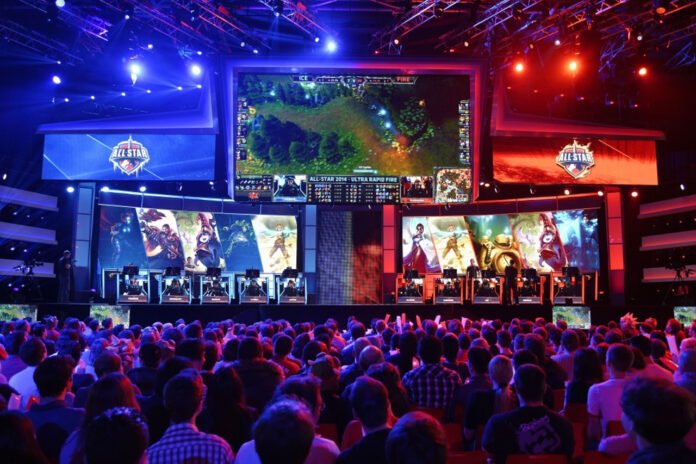The Evolution of Gaming: From Casual Entertainment to Competitive Sports
Gaming has come a long way since its humble beginnings as a casual form of entertainment. What was once considered a simple pastime has now turned into a highly competitive sport, attracting millions of players and spectators from around the world. This shift in perception and popularity has transformed the gaming industry and ushered in a new era of professional gamers.
The Rise of Esports
Esports, or electronic sports, refers to competitive video gaming at the professional level. It involves organized multiplayer competitions, often with cash prizes and sponsorships. The concept of esports emerged in the early 2000s, but did not gain widespread recognition and acceptance until recent years.
One of the main factors in the rise of sports is the development of technology. With the development of powerful gaming consoles, high-speed internet, and online platforms, gamers can now connect and compete globally. This has opened up new opportunities for players to showcase their skills and for spectators to engage with the games.
Another important factor is the increasing interest and investment of large companies and brands. Recognizing the immense potential of esports, companies such as Intel, Coca-Cola, and Red Bull have sponsored tournaments and teams, further legitimizing the industry. This influx of funding has allowed esports to flourish and attract top talent from around the world.
The Professionalization of Gaming
As esports gained popularity, the concept of professional gaming began to take shape. Professional gamers, also known as sports athletes, dedicate hours of practice and training to improve their skills. They compete in organized leagues and tournaments just like traditional sports players.
Professional gaming teams have also emerged, with players signing contracts, receiving salaries and competing in team-based sports. These teams often have coaches, analysts and support staff to improve their performance. The professionalization of gaming has created a structured environment that mirrors traditional sports, with an emphasis on teamwork, strategy, and competition.
Furthermore, the recognition of sports as a legitimate form of competition has led to the establishment of governing bodies and regulatory organizations. These organizations, such as the International Sports Federation (IESF) and Electronic Sports League (ESL), ensure fair play, enforce rules, and facilitate the organization of tournaments and events.
The Spectator Experience
A key aspect that differentiates esports from traditional sports is the spectator experience. Thanks to live streaming platforms like Twitch and YouTube Gaming, fans can watch their favorite players and teams compete in real time from the comfort of their own home. This accessibility has contributed to the rapid growth of esports viewership.
Sports events are no longer limited to small venues. Major tournaments, such as the League of Legends World Championship and The International (Dota 2), take place in large arenas and attract thousands of spectators. The atmosphere at these events is electric, with fans cheering for their favorite teams and players.
The involvement of professional commentators and analysts further enhances the spectator experience. These individuals provide insight, analysis, and play-by-play commentary, making games more engaging and accessible to die-hard fans and newcomers alike.
The Future of Gaming as a Competitive Sport
The future of gaming as a competitive sport looks promising. The global esports market is expected to reach billions of dollars in revenue, with continued growth expected in the coming years. More and more athletes are aspiring to become professional gamers, and colleges and universities are even offering sports scholarships.
Advances in Virtual Reality (VR) and Augmented Reality (AR) technology are also set to revolutionize the gaming industry. These technologies have the potential to create immersive gaming experiences, further blurring the line between virtual and real-world games.
As gaming continues to evolve, it is clear that the perception of gaming as a casual entertainment option has shifted. It has become a legitimate and respected form of competition, attracting players, sponsors, and spectators from all walks of life. The future of gaming as a competitive sport is bright, and it will undoubtedly continue to captivate audiences and push the boundaries of what is possible in the world of entertainment.




